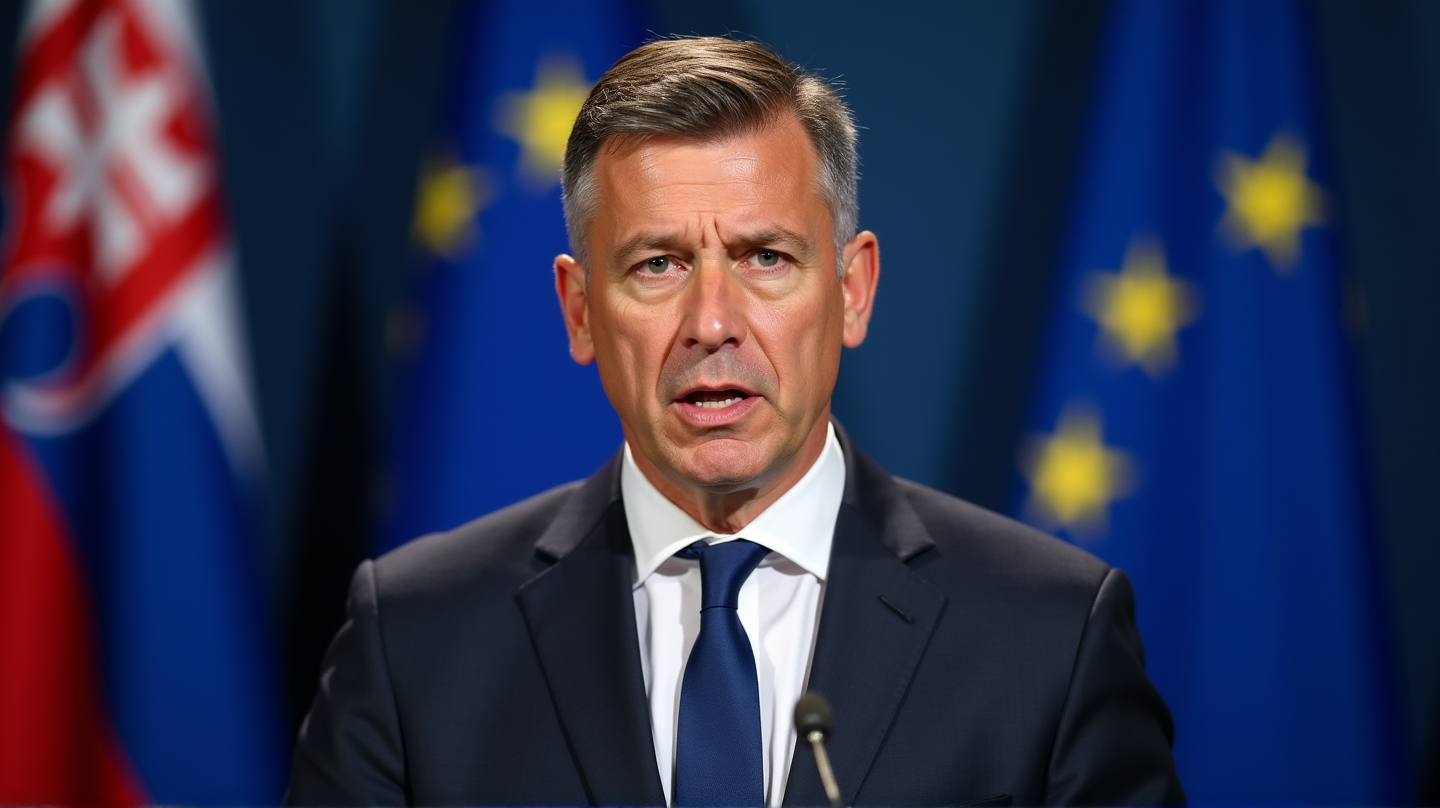Slovak PM Fico Halts Military Aid to Ukraine, Calls EU's Plan 'Biggest Mistake'
Slovakia, under PM Robert Fico, refuses EU's military aid financing for Ukraine, citing adverse impacts of EU sanctions.

A Firm Stand by Slovakia
Slovakia’s Prime Minister, Robert Fico, has taken a resolute stand, stating unequivocally that his country will not participate in the European Union’s financial programs for military assistance to Ukraine. During a recent press conference, Fico declared, “As prime minister, I refuse to allow Slovakia to participate in any financial programs aimed at helping Ukraine manage the war and military spending.” This bold announcement has sparked significant geopolitical discussions.
Opposition to EU’s Strategic Choices
Fico further elaborated on his stance by critiquing the European Union’s plan to provide a substantial aid package of 140 billion euros to Kyiv in the coming years. In his view, this decision represents “the EU’s biggest mistake,” a sentiment that underscores his broader skepticism towards EU policies concerning the Ukraine conflict.
Criticism of EU Sanctions on Russia
Adding another layer to his critique, Fico also voiced his discontent with EU sanctions against Russia. He argued that these sanctions inflict more harm on Europe itself, a perspective that resonates with a faction of European political analysts who question the effectiveness and long-term consequences of such measures.
Slovakia’s Selective Assistance
Despite the halt on state military aid to Ukraine, Slovakia under Fico’s government has extended non-lethal military assistance. For the first time during his term, Slovakia will provide engineering and construction equipment, transport, demining complexes, and medical evacuation equipment. This nuance reveals a complex diplomatic balancing act, as Slovakia allows military supplies on a commercial basis.
A Shift in Slovak Policy
Before Fico assumed office in 2023, Slovakia had been actively participating in military aid to Ukraine. This change signifies a pivot in Slovakia’s foreign policy, one that aligns with Fico’s broader national agenda. While this decision has drawn both domestic and international attention, it remains closely watched as tensions continue to evolve across Europe.
The Future of Slovakia in the EU Landscape
Fico’s decision marks a noteworthy divergence from the EU’s collective stance on Ukraine and Russia. It sparks important questions about the future role of Slovakia within the EU and its relations with neighboring nations. As stated in LIGA.net, this development holds considerable implications for European unity and foreign policy strategies.
This critical moment in Slovak politics may define the country’s trajectory in regional and global arenas. It highlights the intricate interplay between national interests and broader geopolitical commitments, leaving the international community to ponder the larger ramifications of Fico’s enduring legacy.





